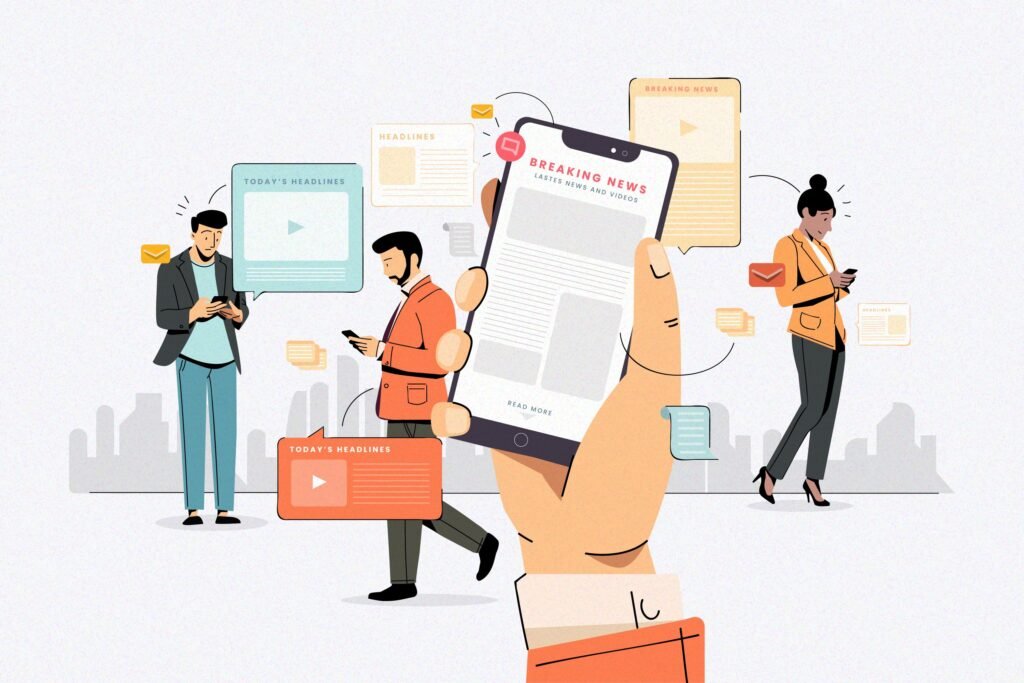Blockchain technology, originally conceived as the underlying infrastructure for cryptocurrencies like Bitcoin, has grown into a transformative technology with applications far beyond just digital currencies.
Its potential in mobile application development is particularly noteworthy, promising to revolutionize how apps are built, operated, and maintained. Mobile app developers could say the same.
In this blog, we’ll discuss everything you need to know about the role of blockchain in mobile app development.
Understanding Blockchain Technology
In simple words, blockchain is a decentralized ledger technology that ensures data integrity, transparency, and security. It operates on a network of nodes (computers) that validate and record transactions in a series of blocks.
Each block is linked to the previous one, forming a chain. This structure assures that once data is recorded, it cannot be altered or deleted without consensus from the network, providing a high level of security and transparency.
Key Benefits of Blockchain in Mobile App Development
1. Improved Security
Blockchain’s decentralized nature makes it inherently secure. Traditional mobile applications rely on centralized servers, which are vulnerable to hacking and data breaches. In contrast, blockchain stores data across a network of nodes, making it extremely difficult for hackers to compromise the entire system. Each transaction or data entry is encrypted and linked to the previous one, ensuring data integrity and security.
2. Improved Transparency
Blockchain provides a transparent and immutable record of transactions. This transparency is particularly beneficial for applications that require a high level of trust and accountability, such as financial apps, supply chain management, and voting systems. With a reliable team of mobile app developers, you can verify transactions and data changes independently, fostering trust in the app’s integrity.
3. Decentralized Apps (DApps)
Decentralized applications, or DApps, run on a blockchain network rather than centralized servers. This decentralization eliminates single points of failure, improving the app’s reliability and uptime. DApps can operate without intermediaries, reducing costs and improving efficiency.
4. Smart Contracts
Smart contracts are self-executing contracts with the terms directly written into code. They automatically execute and enforce agreements when predefined conditions are met. In mobile apps, smart contracts can automate processes, reduce the need for intermediaries, and ensure compliance with contractual terms.
For instance, in a mobile payment app, smart contracts can automatically release funds when both parties meet the agreed conditions.
5. Tokenization
Blockchain enables the creation of digital tokens that represent assets or utilities within an app. These tokens can be used for various purposes, such as in-app purchases, rewards, or even representing real-world assets. Tokenization opens up new business models and revenue streams for mobile app development companies.
6. Data Ownership and Privacy
Blockchain lets users control their data. Unlike traditional apps where data is stored on centralized servers, blockchain-based apps allow users to own and control their data. This shift improves user privacy and aligns with increasing regulatory demands for data protection.
Challenges and Considerations
1. Scalability
Blockchain networks can face scalability issues, particularly as the number of transactions grows. Ensuring that mobile apps can handle high transaction volumes without compromising performance is a critical challenge.
2. Complexity
Integrating blockchain into mobile apps requires specialized knowledge and skills. Developers need to understand blockchain architecture, cryptography, and smart contracts, which can increase the complexity of the development process.
3. Regulatory Compliance
Blockchain applications must guide a complex regulatory landscape. Developers need to ensure that their apps comply with relevant laws and regulations, particularly in industries like finance and healthcare.
4. User Experience
Blockchain-based apps can have a steeper learning curve for users unfamiliar with the technology. Ensuring a seamless and intuitive user experience is essential for widespread adoption.
Mobile app developers in Chennai can solve all these issues easily.
Applications of Blockchain in Mobile App Development
1. Financial Services
Blockchain’s most well-known application is in financial services. Mobile banking, payment apps, and investment platforms can leverage blockchain to improve security, transparency, and efficiency. Cryptocurrencies and digital wallets are notable examples of blockchain-powered financial apps.
2. Supply Chain Management
Mobile apps for supply chain management can use blockchain to track products from origin to delivery. Blockchain ensures the authenticity and integrity of data, reducing fraud and improving traceability. Users can verify product history and authenticity through the app.
3. Healthcare
Blockchain can secure patient data in mobile health apps, ensuring privacy and integrity. It allows for secure sharing of medical records between patients and healthcare providers, improving care coordination and patient outcomes.
4. Voting Systems
Mobile voting apps can utilize blockchain to ensure transparency and prevent fraud. Blockchain’s immutable ledger provides a verifiable and tamper-proof record of votes, enhancing the integrity of the electoral process.
5. Digital Identity Verification
Blockchain can streamline digital identity verification processes in mobile apps. Users can create and manage digital identities securely, reducing the risk of identity theft and fraud. This application is particularly relevant for financial services, e-commerce, and government services.
Conclusion
Blockchain technology is poised to play a significant role in the future of mobile application development. Make use of its ability to improve security, transparency, and efficiency with the help of mobile app developers.






buying testosterone online reviews
References:
liquid dbol for Sale (https://aryba.kg/user/cableowner15/)